
NEUROIMAGING CLINICS OF NORTH AMERICA
Scope & Guideline
Exploring the Frontiers of Neuroimaging Practice
Introduction
Aims and Scopes
- Neuroimaging Techniques and Advances:
The journal extensively covers advancements in neuroimaging techniques, including MRI, CT, PET, and advanced modalities such as diffusion tensor imaging and functional MRI. This focus allows for the exploration of new diagnostic capabilities and treatment monitoring. - Clinical Applications in Neurological Disorders:
A significant aim of the journal is to bridge the gap between imaging technology and clinical practice, particularly in the diagnosis and management of neurological disorders such as multiple sclerosis, stroke, and neurodegenerative diseases. - Research on Demyelinating Disorders:
The journal frequently addresses research related to multiple sclerosis and other demyelinating disorders, examining imaging biomarkers, treatment efficacy, and cognitive impacts, which contributes to a better understanding of these complex conditions. - Vascular Imaging and Neurovascular Pathologies:
There is a strong focus on vascular imaging, covering topics related to cerebrovascular diseases, including stroke, aneurysms, and vasculitis, which is crucial for improving patient outcomes through timely diagnosis and intervention. - Pediatric Neuroimaging:
The journal also emphasizes pediatric neuroimaging, addressing unique challenges and imaging techniques relevant to children, which is vital given the differences in disease presentation and treatment in pediatric populations.
Trending and Emerging
- Integration of Advanced Imaging Biomarkers:
There is a growing emphasis on the integration of advanced imaging biomarkers, such as the central vein sign and metabolic imaging, particularly in the context of multiple sclerosis and stroke, indicating a trend towards more precise diagnostics. - Focus on Cognitive Impairment and Neurodegeneration:
Recent articles increasingly address cognitive impairment associated with neurological disorders, showcasing an emerging interest in understanding the neuroimaging correlates of cognitive decline and their implications for treatment. - Innovative Approaches in Pediatric Neuroimaging:
An upward trend in research related to pediatric neuroimaging is evident, reflecting a growing recognition of the need for specialized imaging strategies tailored to children’s unique neurological conditions. - Multimodal Imaging Techniques:
The trend towards multimodal imaging techniques, which combine various imaging modalities to provide a more comprehensive view of neurological conditions, is increasingly prevalent in recent publications. - Neurovascular Imaging and Interventional Approaches:
The journal is seeing an increase in topics related to neurovascular imaging and the role of imaging in guiding interventional procedures, highlighting the importance of imaging in acute care settings.
Declining or Waning
- Basic Anatomy and Imaging Techniques:
There is a noticeable reduction in publications focused solely on basic anatomical studies and conventional imaging techniques, possibly due to the increasing complexity and specialization of neuroimaging practices. - Traditional Imaging Modalities Without Advanced Techniques:
Papers that discuss traditional imaging modalities without incorporating advanced imaging techniques or new technologies seem to be decreasing, reflecting a trend towards more innovative and multifaceted approaches in neuroimaging. - General Reviews on Common Conditions:
The frequency of general reviews on common neurological conditions has diminished, suggesting a shift towards more specific studies that delve deeper into particular disorders or advanced imaging techniques.
Similar Journals
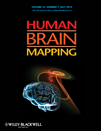
HUMAN BRAIN MAPPING
Mapping the complexities of brain structure and function.HUMAN BRAIN MAPPING, published by Wiley, is a premier journal in the field of neuroscience, devoted to comprehensively advancing understanding of brain structure and function through innovative mapping techniques. With an impressive impact factor and ranked in the Q1 category across multiple relevant disciplines—including Anatomy, Neurology, and Radiology—this journal is recognized as a vital resource for researchers and professionals passionate about the complexities of the human brain. Founded in 1993 and continuously publishing groundbreaking research, HUMAN BRAIN MAPPING is essential for those looking to stay at the forefront of developments in anatomical and neurological research. Though it does not currently offer Open Access options, the journal remains committed to disseminating high-quality research that influences clinical practices and academic inquiry. Its esteemed position within Scopus highlights its significance; charting at the top percentiles across various medical and health fields serves as a testament to the critical contributions made by the authors and researchers involved. As it converges toward 2024, HUMAN BRAIN MAPPING continues to be the go-to platform for publishing pivotal insights into the intricacies of brain mapping methodologies and applications.
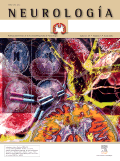
NEUROLOGIA
Advancing Neurological Knowledge for a Brighter TomorrowNEUROLOGIA, an esteemed journal published by ELSEVIER ESPANA SLU, stands at the forefront of the field of neurology, with a dedicated focus on innovative research and clinical practice since its inception in 1973. As an Open Access journal since 2017, it champions the dissemination of knowledge, allowing researchers, professionals, and students alike to access cutting-edge findings in neurology without barriers. With an impressive Scopus rank of #115 in the clinical neurology category, placing it in the 71st percentile, NEUROLOGIA is categorized as Q3 in both general medicine and clinical neurology, reflecting its impact and relevance in a rapidly evolving field. Based in Barcelona, Spain, the journal's commitment to advancing understanding of neurological conditions is underscored by its rigorous peer-review process and engagement with a global audience. As it continues to publish vital research that shapes clinical practices and informs policy, NEUROLOGIA remains an integral resource for those striving to improve outcomes in neurology.
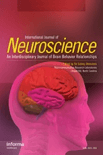
INTERNATIONAL JOURNAL OF NEUROSCIENCE
Advancing the Frontiers of Neuroscience KnowledgeThe INTERNATIONAL JOURNAL OF NEUROSCIENCE, published by TAYLOR & FRANCIS LTD, stands as a vital resource in the field of neuroscience since its inception. With a proud history of publication from 1970 to 2024, this journal is committed to advancing knowledge in various domains of neuroscience, from fundamental research to clinical applications. It is indexed with an ISSN of 0020-7454 and an E-ISSN of 1563-5279, reflecting its wide reach and recognition. The journal maintains a respectable position in the academic landscape, categorized as Q2 in Medicine (miscellaneous) and Q3 in Neuroscience (miscellaneous) as of 2023, signifying its relevance among researchers and professionals. Although it currently does not offer open access, the journal remains a significant platform for disseminating groundbreaking research, thereby fostering collaboration and innovation within the neuroscience community. Located in the United Kingdom, the journal aims to bridge gaps in neuroscience knowledge, making it an essential reading for students, professionals, and researchers dedicated to unraveling the complexities of the nervous system.

SEMINARS IN ROENTGENOLOGY
Advancing the Frontiers of Imaging ScienceSEMINARS IN ROENTGENOLOGY is a revered journal dedicated to the dynamic fields of Radiology, Nuclear Medicine, and Imaging, published by W B SAUNDERS CO-ELSEVIER INC. With a legacy spanning from 1966 to 2024, this journal provides a platform for comprehensive review articles that foster scholarly discussion and advancement in diagnostic imaging techniques and methodologies. Although currently not an open access publication, SEMINARS IN ROENTGENOLOGY holds significant relevance within its field, reflected by its inclusion in the Q4 category in the latest 2023 Journal Rankings and its position in the 20th percentile among its peers. This journal appeals widely to researchers, professionals, and students aiming to enhance their knowledge and contribute to the evolving landscape of radiologic science. Notable for its informative content and expert insights, SEMINARS IN ROENTGENOLOGY continues to serve as an essential resource for those committed to advancing clinical practice and research in radiology.

NEUROPEDIATRICS
Fostering breakthroughs in the understanding of pediatric neurology.NEUROPEDIATRICS is a prominent academic journal published by GEORG THIEME VERLAG KG, dedicated to advancing the understanding and treatment of neurological disorders in children. Established in 1980, this journal has consistently provided a platform for innovative research and clinical practice in the fields of pediatrics and neurology, culminating in its recognition across various rankings; it holds a Q2 rating in Pediatrics, Perinatology and Child Health, and Q3 in both Medicine (miscellaneous) and Neurology (clinical) as of 2023. While NEUROPEDIATRICS is not an open access journal, it remains a crucial resource for researchers, clinicians, and students who seek cutting-edge insights and evidence-based practices in the management of pediatric neurological issues. As a result, NEUROPEDIATRICS plays an indispensable role in shaping future research directions and improving health outcomes in this vital field.
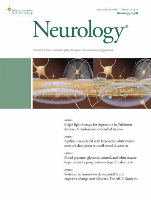
NEUROLOGY
Connecting professionals with cutting-edge neurological findings.NEUROLOGY, published by Lippincott Williams & Wilkins, stands as a premier journal in the field of neurology, holding an esteemed Q1 category ranking in clinical neurology as of 2023. Established in 1951, this journal has been a critical resource for the dissemination of cutting-edge research and clinical advancements, with an impressive Scopus rank of 24 out of 400, placing it in the 94th percentile among its peers. NEUROLOGY serves as a vital platform for neurologists, researchers, and medical professionals seeking to stay abreast of the latest findings and innovations in the treatment and understanding of neurological disorders. With its rigorous peer-review process and commitment to excellence, NEUROLOGY remains essential reading for all individuals dedicated to advancing the science and practice of neurology, contributing significantly to the ongoing dialogue in this vital area of medicine.
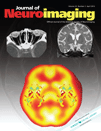
JOURNAL OF NEUROIMAGING
Connecting Minds in the World of NeuroimagingJOURNAL OF NEUROIMAGING, published by Wiley, serves as a premier platform for advancing knowledge in the fields of neurology, radiology, and clinical imaging. With its ISSN 1051-2284 and E-ISSN 1552-6569, the journal spans influential research dating from 1991 to 2024, making it an essential resource for professionals and researchers engaged in neuroimaging. It holds a commendable position in Quartiles—ranking Q2 in both Medicine (miscellaneous) and Neurology (clinical), and Q1 in Radiology, Nuclear Medicine, and Imaging as of 2023. The journal's standing in the Scopus rankings, particularly its percentile ranks of 68th and 60th in their respective categories, underscores its impact within the academic community. Although it does not offer open access, it remains pivotal for disseminating high-quality, peer-reviewed research that enriches the understanding of neuroimaging techniques and their clinical applications. The JOURNAL OF NEUROIMAGING is an invaluable resource for scholars seeking to contribute to the evolving landscape of medical imaging and neurodiagnosis.
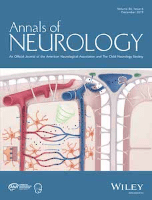
ANNALS OF NEUROLOGY
Unveiling Breakthroughs in Neurological DisordersANNALS OF NEUROLOGY, published by Wiley, stands as a leading journal in the field of neurology, renowned for its rigorous peer-reviewed articles that contribute significantly to the understanding of neurological disorders and advances in clinical practices. With an impressive impact factor and ranked Q1 in both neurology and clinical neurology categories, this journal positions itself among the top repositories of cutting-edge research, indexed in Scopus with exemplary ranks in the 98th and 97th percentiles respectively. Since its inception in 1977 and with a commitment to excellence extending to 2024 and beyond, ANNALS OF NEUROLOGY aims to disseminate groundbreaking studies and foster dialogue within the academic community, making it an essential resource for researchers, healthcare professionals, and students dedicated to neurology. Although it does not currently offer open access, its accessibility through institutional subscriptions facilitates widespread scholarly engagement.
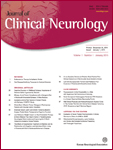
Journal of Clinical Neurology
Leading the Charge in Neurological InnovationThe Journal of Clinical Neurology, published by the Korean Neurological Association, is a prominent open-access journal that has been disseminating crucial findings in the field of neurology since its inception in 2008. With an ISSN of 1738-6586 and an E-ISSN of 2005-5013, this journal provides a vital platform for researchers and clinicians to share innovative research, reviews, and case studies that advance understanding and treatment of neurological disorders. The journal has established its reputation, achieving a Q3 ranking in Neurology and a Q2 ranking in Clinical Neurology in 2023, placing it among the noteworthy sources in the medical community. With its open-access format since 2011, it facilitates broad dissemination of knowledge to both the scientific community and the public, supporting the journal's mission to enhance clinical practice and promote neurological health in South Korea and beyond. As of October 2023, it holds influential Scopus ranks, reflecting its impact and relevance in the ever-evolving landscape of neuroscience. Researchers, professionals, and students alike are encouraged to contribute to and engage with the ongoing discourse by submitting their work and accessing a wealth of resources through this esteemed publication.
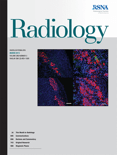
RADIOLOGY
Advancing the frontiers of medical imaging.RADIOLOGY, published by the Radiological Society of North America (RSNA), stands as a premier journal in the fields of radiology, nuclear medicine, and imaging. Established in 1945, this esteemed journal has consistently provided groundbreaking research and insights, helping to shape advancements in diagnostic imaging and therapeutic interventions. With a commendable Q1 ranking in its category and a remarkable 99th percentile ranking in Scopus, RADIOLOGY continues to be a pivotal resource for clinicians, researchers, and students alike. Although not an Open Access journal, it offers a wealth of high-quality peer-reviewed articles that contribute significantly to the ongoing discourse in the medical community. With a strong focus on innovative techniques and the integration of new technologies, RADIOLOGY remains essential for professionals aiming to stay at the forefront of medical imaging practices.